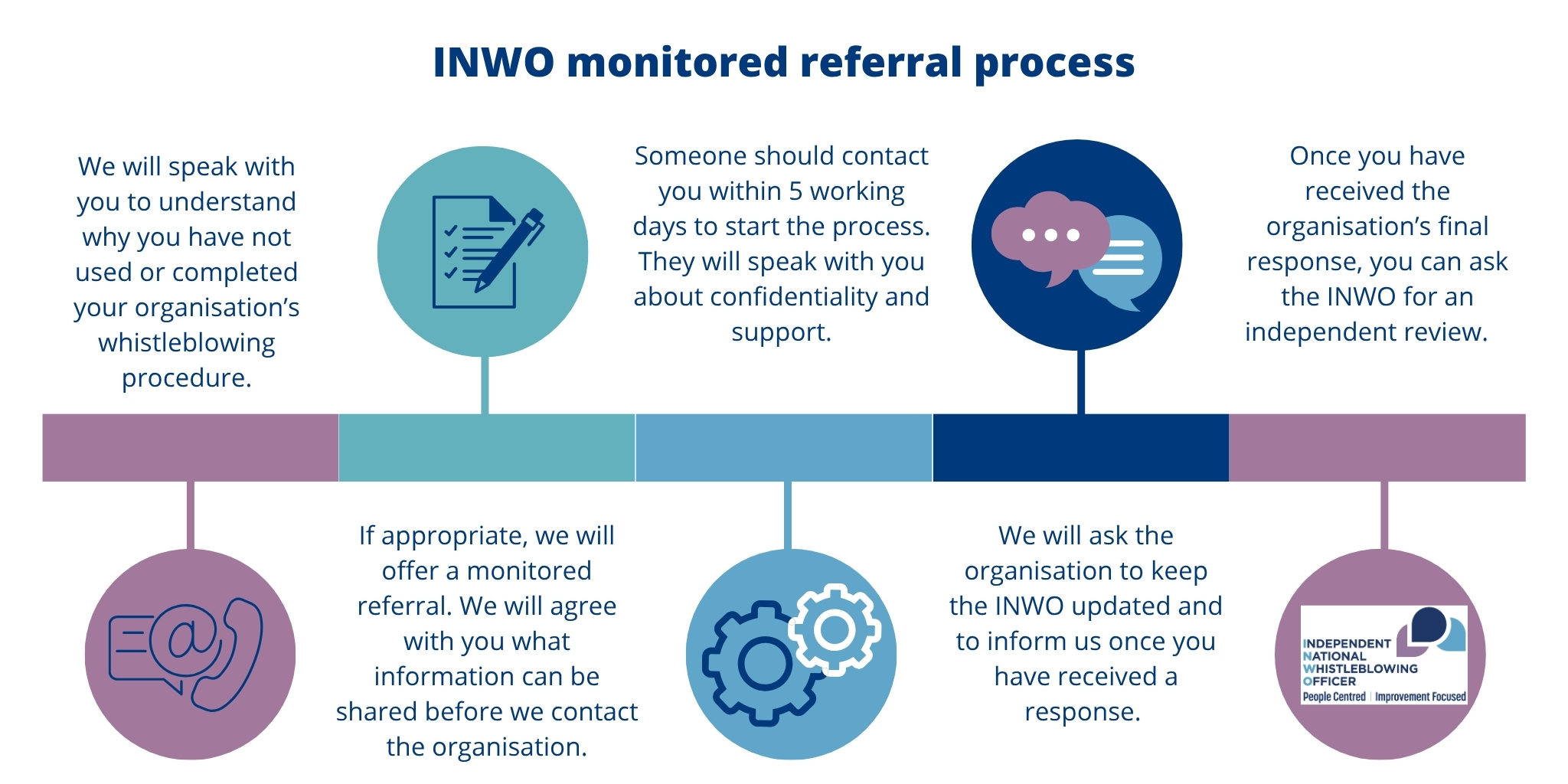
What happens if you have not used the local whistleblowing procedure
When you contact the INWO with a whistleblowing concern, we first check whether you have already raised it through your organisation’s whistleblowing procedure.
We believe that, wherever possible, the organisation should have the first opportunity to look into the concern and take appropriate action. This helps ensure the issue is dealt with by the people best placed to make changes and improve services.
If you have not used the local procedure, we will look at why. If it is simply because you did not know about it, we will usually guide you to raise your concern with the organisation first.
When you need extra help
We understand that sometimes it is not easy to use the local procedure. You might:
- Feel unsafe raising your concern
- Need extra support
- Have tried but found the process was not working properly
In these situations, we may offer a monitored referral to help you raise your concern safely and with support.
What is a monitored referral?
A monitored referral is a way for us to help you share your concern with the right person in your organisation. This approach creates a safe and supported route into the local process.
We will only share details of your concern and your personal data as part of a monitored referral if we have agreed this with you first.
If you agree to a monitored referral, we will:
- Share your concern with an appropriate person within your organisation
- Share your name and contact details, so someone can speak with you
- Let them know about any support needs you have agreed we can share
- Explain why we are making the referral
We may also ask the organisation to take specific steps, such as:
- Checking what support you need
- Making sure you are protected from unfair treatment
Each case is different, and what we ask will depend on the situation and what we agree with you.
We will also share with you details of people within your organisation that can provide confidential advice and support about the local whistleblowing process. These people are sometimes called ‘Confidential Contacts’ or ‘Speak-up Ambassadors’.
What happens next
We expect the person who receives the referral to get in touch with you within five working days. If you decide to go ahead, they will:
- Check whether your concern meets the definition of whistleblowing
- Handle it under the organisation’s whistleblowing procedure if it does
- Talk to you about all aspects of confidentiality, including who will need to know about your concern and why
- Discuss what support you might need and how it can be provided
We will continue to monitor the referral until we are confident the organisation has provided you with a response.
If we believe your concern is not being handled appropriately, we may step in to offer further support or take action under our Support and Intervention Policy.
Your privacy matters
We take confidentiality very seriously. We will only share your name or details as part of a monitored referral with your permission. You can find more information about how we handle data in our privacy notice.